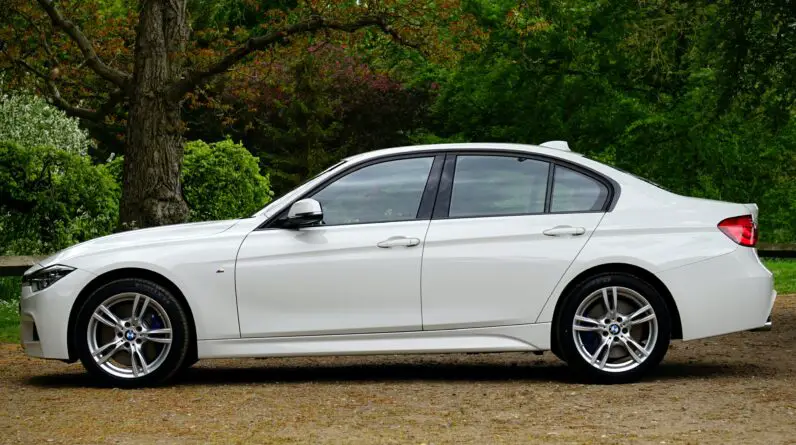
Did you know that your personal car insurance policy may not provide coverage if you use your vehicle for business purposes? That’s where Class 1 Business Use Car Insurance comes in. Class 1 Business Use Car Insurance is a specific type of insurance that provides coverage for individuals who use their cars for work-related activities, such as commuting, visiting clients, or attending meetings. By adding this coverage to your existing policy, you can ensure that you’re protected in case of accidents or damage that may occur during business use. It’s a smart and practical option for those who rely on their vehicles for work.
Overview of Class 1 Business Use Car Insurance
Class 1 Business Use Car Insurance is a specific type of insurance coverage designed for individuals who use their vehicles for business purposes. This type of insurance provides coverage for accidents and incidents that occur while using the vehicle for business-related activities. It is important for individuals who use their cars for business purposes to have appropriate insurance coverage to protect themselves and their assets.
Definition of Class 1 Business Use Car Insurance
Class 1 Business Use Car Insurance is a specific category of insurance coverage that is separate from personal car insurance. It is designed to provide coverage for accidents and incidents that occur while the insured vehicle is being used for business purposes. This can include activities such as making deliveries, transporting goods or clients, or conducting business-related errands.
Importance of Class 1 Business Use Car Insurance
Having Class 1 Business Use Car Insurance is important for anyone who drives their vehicle for business purposes. This insurance provides coverage in the event of accidents or incidents that occur during business-related activities. Without this insurance, individuals could be held personally liable for damages or injuries that occur during business use of their vehicle. Having the appropriate insurance coverage not only protects individuals from financial risk but also ensures that they are in compliance with legal requirements.
Types of Class 1 Business Use Car Insurance
There are various types of coverage provided by Class 1 Business Use Car Insurance. These include:
Liability Coverage
Liability coverage protects individuals from financial loss if they are found responsible for causing an accident that results in injury or property damage to another party. This coverage helps pay for the injured party’s medical expenses and repairs to their property.
Collision Coverage
Collision coverage provides protection for damage to the insured vehicle in the event of an accident with another vehicle or object. This coverage helps pay for repairs or replacement of the insured vehicle.
Comprehensive Coverage
Comprehensive coverage protects against damage to the insured vehicle that is not caused by a collision, such as theft, vandalism, or natural disasters. This coverage helps pay for the repair or replacement of the vehicle.
Uninsured/Underinsured Motorist Coverage
Uninsured/Underinsured Motorist Coverage provides protection in the event that the insured is involved in an accident with a driver who does not have insurance or does not have enough insurance to cover the damages. This coverage helps pay for medical expenses and repairs to the insured vehicle.
Medical Payments Coverage
Medical Payments Coverage provides coverage for medical expenses incurred by the insured and their passengers as a result of an accident, regardless of who is at fault. This coverage can help pay for medical bills, hospital stays, and other related expenses.
Personal Injury Protection (PIP) Coverage
Personal Injury Protection (PIP) Coverage is similar to medical payments coverage and provides additional protection by covering not only medical expenses but also lost wages and other related costs resulting from an accident. PIP coverage varies by state, so it is important to check the specific requirements and limits.

Eligibility and Requirements for Class 1 Business Use Car Insurance
While the specific requirements for Class 1 Business Use Car Insurance may vary between insurance providers, there are general eligibility criteria and requirements that individuals must meet:
Eligible Vehicle Types
Certain types of vehicles may not be eligible for Class 1 Business Use Car Insurance coverage. Vehicles used primarily for commercial purposes, such as heavy trucks or taxis, may require specialized insurance coverage instead.
Driving Experience and Record
Insurance providers typically consider the driving experience and record of the individual applying for insurance. A clean driving record with no accidents or traffic violations can help lower premiums, while a history of accidents or violations may result in higher premiums or difficulty obtaining coverage.
Business Use Verification
Insurance providers may require proof of business use, such as documentation showing the purpose of vehicle use or a letter from the employer stating the need for business-related transportation.
Minimum Coverage Requirements
Each state has its own minimum coverage requirements for Class 1 Business Use Car Insurance. It is important to be familiar with these requirements to ensure compliance and avoid any legal issues.
Factors Affecting Class 1 Business Use Car Insurance Premiums
Several factors can influence the premiums for Class 1 Business Use Car Insurance:
Driver’s Age and Gender
Younger drivers and male drivers generally pay higher premiums due to higher perceived risk.
Driving Experience
Drivers with more experience and a clean record tend to have lower premiums than those with less experience or a history of accidents.
Vehicle Type and Value
The type and value of the insured vehicle can affect premiums. More expensive or high-performance vehicles may have higher premiums due to the increased cost of repairs or replacement.
Business Use Frequency
The frequency of business use can impact premiums. Vehicles used daily for business purposes may have higher premiums compared to those used occasionally.
Geographical Location
Insurance premiums can also vary based on the location where the vehicle is primarily operated. Areas with higher accident rates or more congestion may have higher premiums.
Claim History
A history of past claims can influence premiums. Individuals with a history of frequent claims may be considered higher risk and face higher premiums.
Benefits of Class 1 Business Use Car Insurance
There are several benefits to having Class 1 Business Use Car Insurance:
Class 1 Business Use Car Insurance provides financial protection in the event of accidents or incidents that occur while using the vehicle for business purposes. It helps cover the costs of repairs, medical expenses, and potential legal fees, relieving individuals of financial burdens.
Coverage for Legal Costs
In the event of a lawsuit resulting from a business-related accident, Class 1 Business Use Car Insurance can help cover legal costs, including court fees, attorney fees, and settlements, up to the policy limits.
Peace of Mind
Having the proper insurance coverage provides peace of mind for individuals who rely on their vehicles for business purposes. They can focus on their work without worrying about potential financial consequences if an accident were to occur.
Exclusions and Limitations of Class 1 Business Use Car Insurance
While Class 1 Business Use Car Insurance provides important coverage, there are some exclusions and limitations to be aware of:
Personal Use Limitations
Class 1 Business Use Car Insurance typically only covers accidents and incidents that occur while the vehicle is being used for business purposes. Personal use, such as daily commuting or weekend outings, may not be covered under this policy.
Commercial Use Limitations
Vehicles primarily used for commercial purposes, such as delivery trucks or taxis, may require specialized insurance coverage and may not be eligible for Class 1 Business Use Car Insurance.
Intentional Acts Exclusion
Class 1 Business Use Car Insurance does not cover intentional acts, such as using the vehicle for illegal activities or intentionally causing harm to others.
Racing or High-Speed Events Exclusion
Engaging in racing or participating in high-speed events is typically excluded from coverage under Class 1 Business Use Car Insurance. Separate coverage may be required for these activities.
Filing a Claim with Class 1 Business Use Car Insurance
In the unfortunate event of an accident or incident, here are the steps to follow when filing a claim with Class 1 Business Use Car Insurance:
Contacting the Insurance Provider
Notify the insurance provider as soon as possible after the accident. They will guide you through the claims process and provide you with the necessary forms and information.
Completing Claim Forms
Fill out the required claim forms provided by the insurance provider. Provide accurate and detailed information about the accident, including any parties involved, witnesses, and the extent of the damages.
Providing Supporting Documentation
Gather any supporting documentation, such as photos of the accident scene, police reports, medical records, and repair estimates. Submit these documents along with your claim forms to the insurance provider.
Cooperating with Investigations
Cooperate fully with any investigations conducted by the insurance provider. This may include providing additional information, answering questions, or meeting with their claims adjuster. Cooperating helps ensure a smooth claims process.
Tips for Finding the Best Class 1 Business Use Car Insurance
Finding the best Class 1 Business Use Car Insurance involves careful consideration and research. Here are some tips to help in the process:
Research Different Insurance Providers
Research different insurance providers and compare their offerings. Look for providers with a strong reputation, financial stability, and a history of reliable customer service.
Compare Coverage and Premiums
Compare the coverage options and premium rates offered by different insurance providers. It is important to ensure that the coverage provided meets your specific needs and that the premiums are reasonable and within your budget.
Read Customer Reviews
Read customer reviews and feedback about the insurance providers you are considering. This can provide valuable insights into their customer service, claims handling, and overall satisfaction levels.
Consider Referrals from Trustworthy Sources
Ask for referrals from trusted sources, such as friends, family, or business associates who have had positive experiences with their Class 1 Business Use Car Insurance providers. Their recommendations can help guide you in the right direction.
Review the Policy Terms and Conditions
Carefully review the terms and conditions of the policy before making a final decision. Pay attention to coverage limitations, exclusions, deductibles, and any additional fees or charges. Make sure you fully understand what is covered and what is not.
Frequently Asked Questions about Class 1 Business Use Car Insurance
Here are some frequently asked questions about Class 1 Business Use Car Insurance:
What is the definition of Class 1 business use?
Class 1 business use refers to the use of a vehicle for business-related activities or purposes. This can include activities such as making deliveries, transporting goods or clients, or conducting business-related errands.
Can personal vehicles be covered under Class 1 business use car insurance?
Yes, personal vehicles can be covered under Class 1 business use car insurance if they are being used for business purposes. It is important to inform the insurance provider about the intended business use of the vehicle to ensure appropriate coverage.
Is class 1 business use car insurance more expensive than personal car insurance?
Class 1 business use car insurance can be more expensive than personal car insurance due to the increased risk associated with business use. Factors such as driving history, vehicle type, and the extent of business use can also influence the premium rates.
What happens if I fail to disclose my business use when applying for class 1 car insurance?
Failure to disclose business use when applying for Class 1 car insurance can result in coverage denial or a cancellation of the policy. It is important to provide accurate and honest information when applying for insurance to avoid potential issues in the future.
Can I use my class 1 business use car for personal purposes as well?
While Class 1 business use car insurance primarily covers the vehicle’s use for business purposes, there may be limited coverage for personal use. However, it is important to check the terms and conditions of the policy to understand the limitations and exclusions for personal use.
Are rental cars covered under class 1 business use car insurance?
Rental cars used for business purposes may not be covered under Class 1 business use car insurance. It is recommended to check with the insurance provider or rental car company to determine if additional coverage is needed.
Conclusion
Class 1 Business Use Car Insurance is a valuable insurance coverage for individuals who use their vehicles for business purposes. It provides essential financial protection, coverage for legal costs, and peace of mind in the event of accidents or incidents. Understanding the eligibility requirements, coverage options, and filing procedures will help individuals find the best insurance policy for their business needs. By conducting thorough research, comparing providers, and reading customer reviews, individuals can make an informed decision and ensure they have the necessary protection for their business use vehicles.





